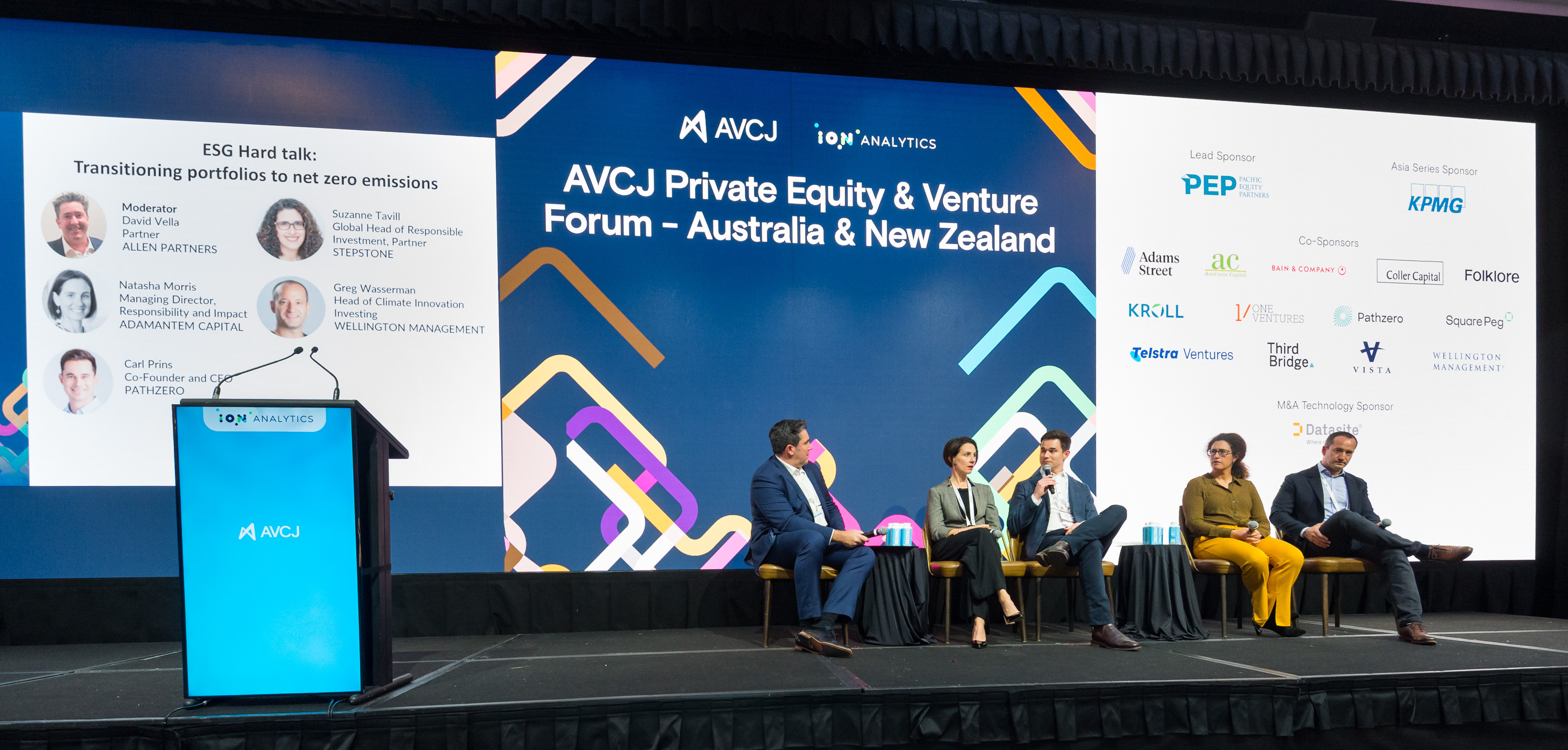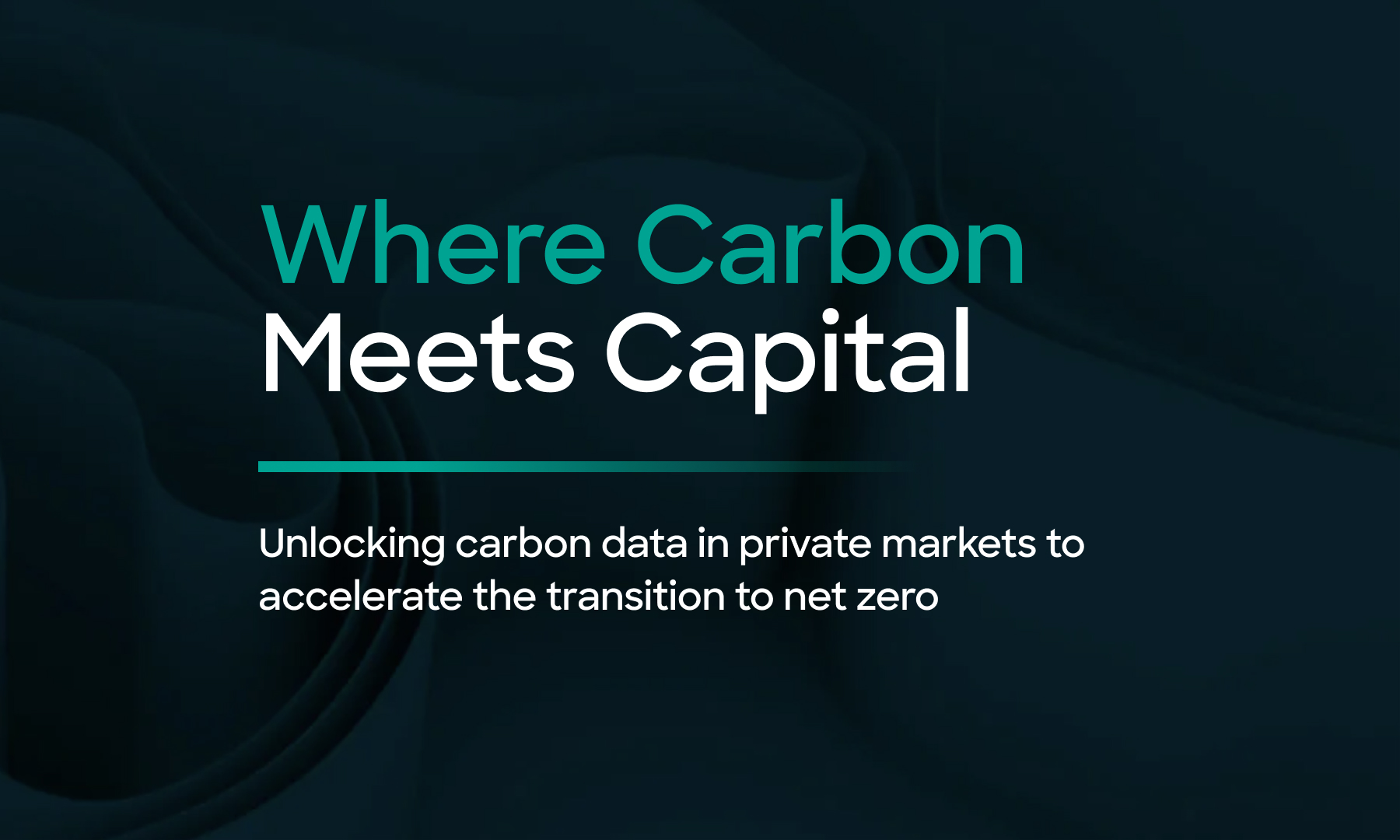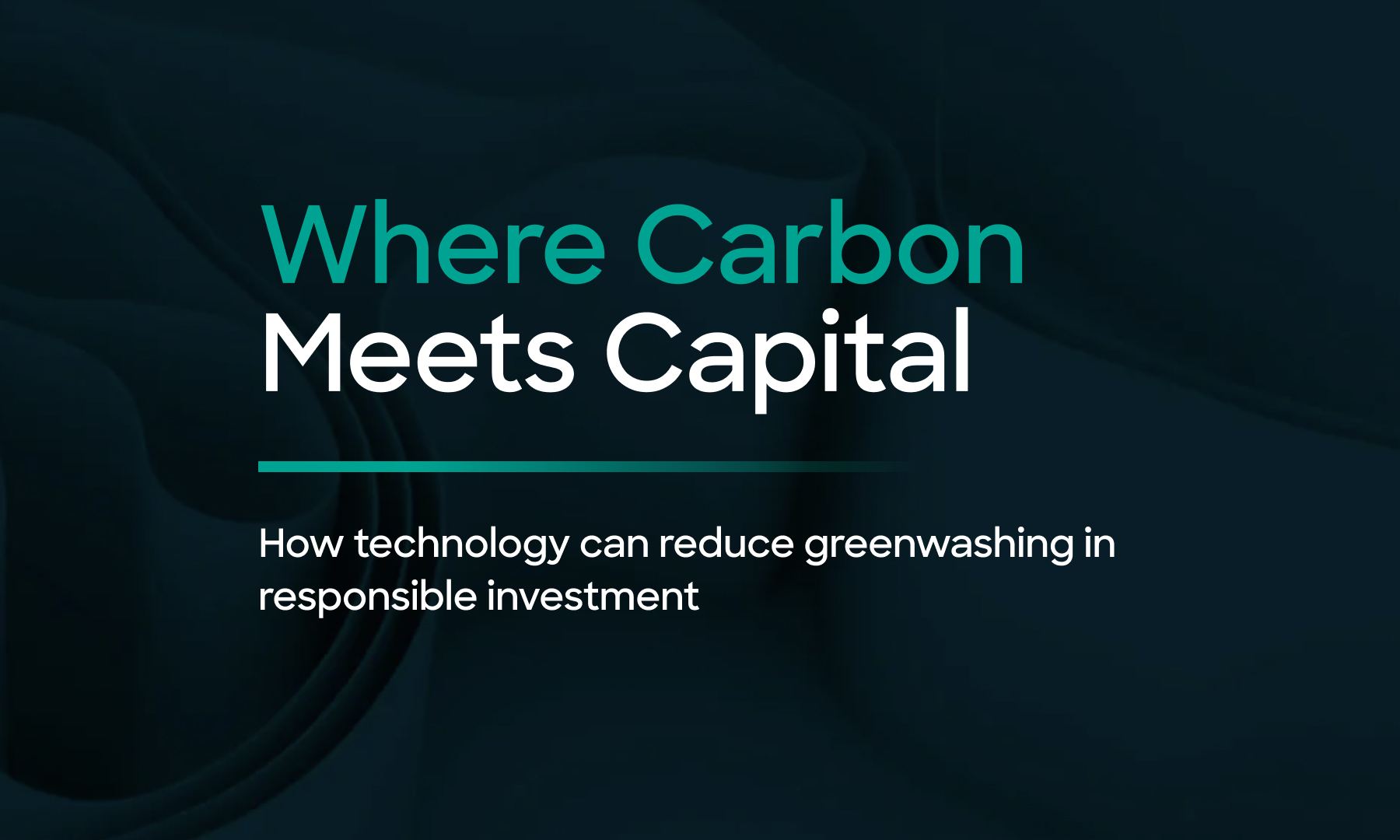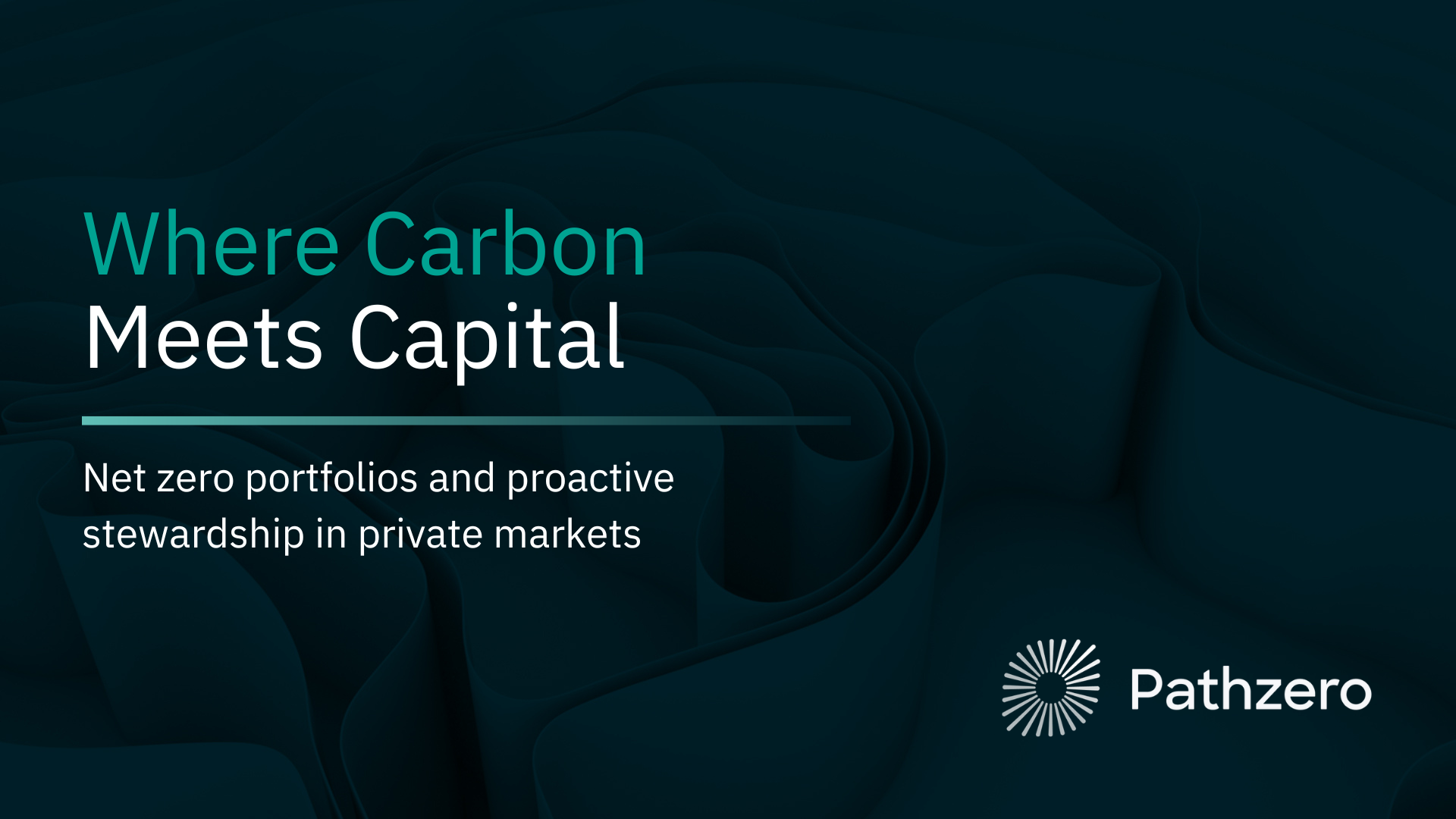Left to right: David Vella, Natasha Morris, Carl Prins, Suzanne Tavill, Greg Wasserman
Last week, the Pathzero team attended the two-day Private Equity & Venture Capital Forum Australia and New Zealand, hosted by AVCJ in Sydney. Pathzero Co-Founder and CEO – Carl Prins – participated in the panel discussion ‘ESG Hard Talk: Transitioning Portfolios to Net Zero Emissions’, alongside Suzanne Tavill (Global Head of Responsible Investment at StepStone Group), Natasha Morris (Managing Director for Responsibility and Impact at Adamantem Capital), Greg Wasserman (Head of Climate Innovation Investing at Wellington Management) and moderated by David Vella (Partner at Allen Partners).
Carl kicked off the panel session with a poignant reminder about our remaining ‘carbon budget’ over the next 30 years. We have around 400 gigatonnes of CO2 left to emit if we’re to achieve a 1.5°C scenario, and current annual CO2 emissions are around 40 gigatonnes – meaning current estimates see us using our entire 2050 budget in the next 9-10 years. There’s an alarming rate of change required between now and 2050 if we’re to meet the ambitions of the Paris Agreement. The investment community has a critical role to play in this transition by exercising their influence with their portfolio companies and reducing their Scope 3 (Category 15) emissions.
Here are our top 5 themes from the panel discussion:
1. Net zero portfolios present significant commercial opportunities
Greg highlighted that decarbonisation presents one of the biggest economic opportunities for investors today. The panel discussed the various opportunities that come from a strong understanding of a portfolio’s carbon profile, and a well-considered decarbonisation plan. This included better risk assessment in the investment decision-making process, increased OpEx efficiencies for portfolio companies, and increasing exit valuations, particularly with overseas buyers who must adhere to existing regulations. In addition, sectors that align with a rapidly decarbonising world – such as carbon removal technologies or new fuels – are set for exponential demand growth and so present incredible investment opportunities.
“ESG is not an asset class but a lens of risk that can be applied to any kind of investing … if you have a thoughtful ESG lens in any asset class you invest in, you’re identifying risk and opportunity with company culture, how they behave environmentally, corporate governance, and all these issues that affect return.Greg Wasserman - Head of Climate Innovation Investing at Wellington Management |
2. Being a laggard is becoming increasingly risky and expensive
The longer investment managers wait to begin their decarbonisation journey, the riskier and more expensive it’s likely to be become. It’s no longer an option to be a laggard. Greg highlighted the increased exposure to rising carbon offset prices, and Suzanne pointed out that the scope of what is considered a stranded asset is becoming wider, with investors beginning to reject deals if the decarbonisation plan is not well considered.
3. Asset managers are applying a dedicated focus to decarbonisation
Suzanne described some of the changes she’s noticed on the GP side, with one of the key trends being that decarbonisation is increasingly becoming a priority for asset managers. Until recently, decarbonisation has been siloed as a subject of ESG, which in turn, has been siloed as someone’s part time role. We’re now realising that this is a deep, complex space that warrants dedicated personnel and resources.
4. Accessing carbon data is a significant challenge and technology is key
You can’t reduce what you can’t measure. Natasha and Greg both highlighted that it can be complicated for asset managers to access portfolio company carbon data. Many don’t measure, and those who do are at very different stages of their climate journey and calculate their emissions according to different methods. This means that by the time that data reaches the asset manager, the quality is inconsistent, making decarbonisation efforts a time consuming and painful process. The exercise of producing this data can also create pressure for portfolio companies themselves. The panel discussed the opportunity that technology presents when it comes to producing accurate and consistent baseline data, and through automation, making the process of collecting and analysing carbon data much more efficient.
.jpg?width=600&name=_EA01468%20(1).jpg)
| Left to right: David Vella, Natasha Morris, Carl Prins, Suzanne Tavill, Greg Wasserman |
Carl also highlighted the importance of technology for scalability and security. There simply aren’t enough consultants in the world to support the number of organisations that require access to this expertise and as asset managers, institutional investors and portfolio companies become increasingly reliant on one another for carbon data, we need to consider the importance of data security.
“There are only so many people that have this expertise in the world today, and then there’s every company in the world that needs to start reporting this [carbon information] the same way they report their financial information. We need a technology solution. Otherwise, we’re simply not going to be able to scale the expertise that we need.Carl Prins - Co-Founder & CEO at Pathzero |
Data relating to a company’s emissions output is sensitive, and often financial in nature. Sending this information between parties through spreadsheets is no longer an option, and technology offers a way to keep this data secure.
5. The conversation between market participants is becoming more collaborative, and technology will facilitate it
Natasha highlighted that the investment community is increasingly realising that we’re all on the same journey, and the conversation between GPs and LPs is therefore becoming more collaborative. Investment managers like Adamantem have developed emissions reduction committees, comprising a group of their LP investor base to help guide their decarbonisation journey. The same goes for the relationship between asset managers and their portfolio companies.
Carl highted that we need ‘radical collaboration’ between market participants if we’re to achieve net zero. Technology will be key in facilitating that collaboration, and also helping to achieve the right level of engagement. For example, technology solutions can initially be used to screen a portfolio for the greatest areas of risk, in a way that uses high-quality estimates and alleviates the need to burden portfolio companies in the beginning of the journey. This helps asset managers glean insights today, in preparation for more rigorous reporting further down the line..jpg?width=600&name=_EA01493%20(1).jpg)
| Left to right: David Vella, Natasha Morris, Carl Prins, Suzanne Tavill, Greg Wasserman |
Thanks to the team at AVCJ and the panellists for an insightful discussion. We look forward to supporting the progress towards net zero across the investment community in advance of next year’s forum. In the meantime, it is clear that the time to begin taking action within portfolios is now. We know that this will be a multi-year journey to gather the data required, but everyone has to start somewhere and as Natasha so aptly said - "you can’t let perfect be the enemy of progress”.
Pathzero Portfolio is a custom-built platform for private market investors. Offering seamless data networking between trusted parties, private market investors can gain full visibility over their financed emissions whether it be Private Equity or Venture Capital.
For a more detailed explanation of Pathzero Portfolio and how it can help you to decarbonise your portfolio emissions, book a consultation to speak with our team.
To receive updates on our latest insight pieces, designed to support businesses and the investment community navigate their climate journey, subscribe to our mailing list.







